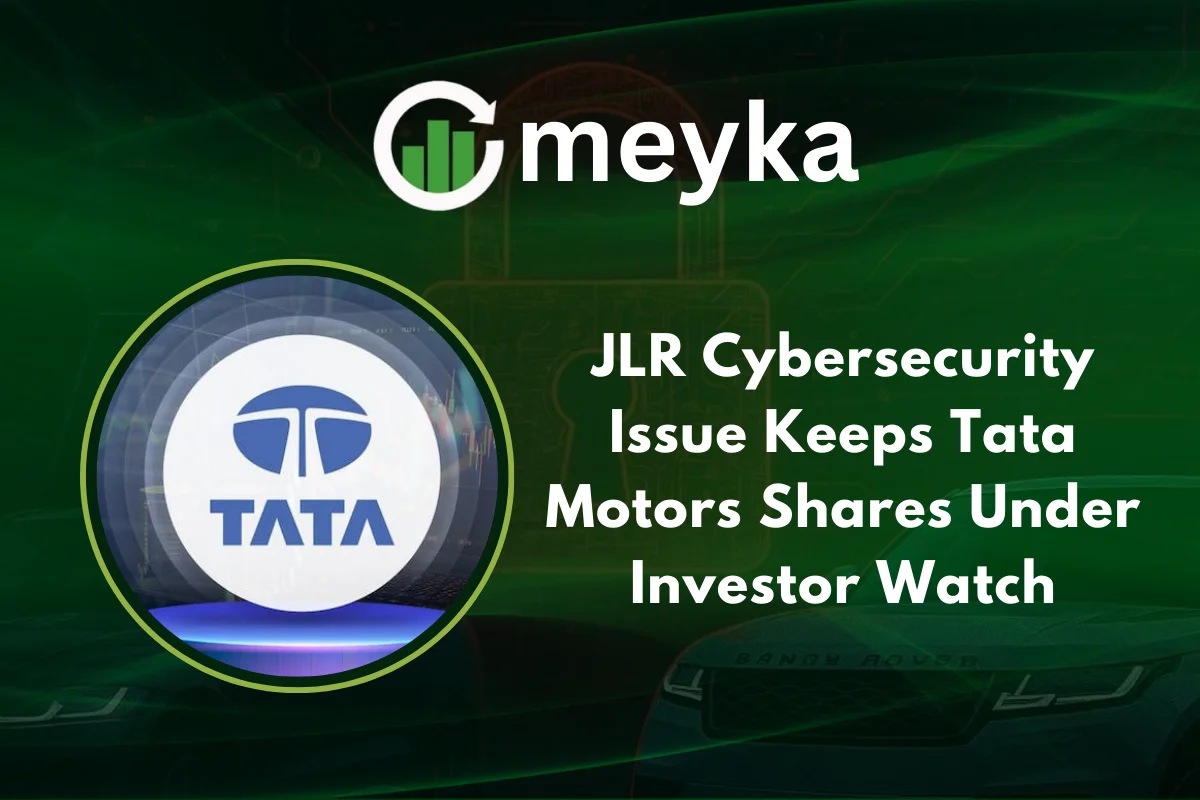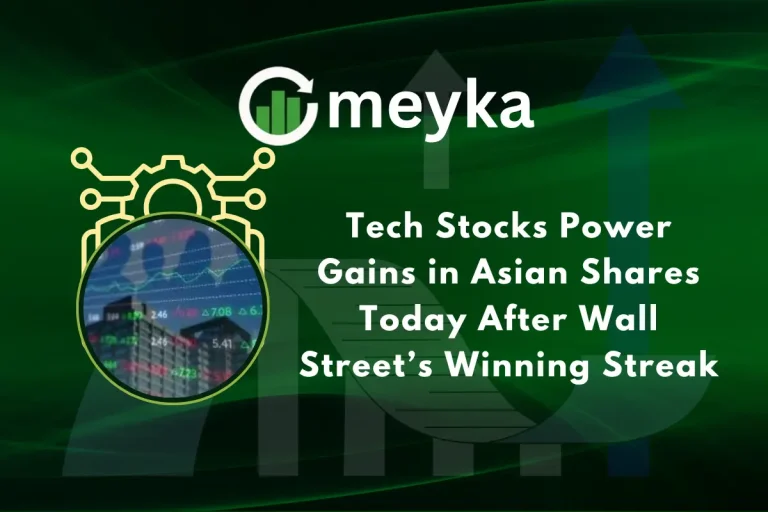JLR Cybersecurity Issue Keeps Tata Motors Shares Under Investor Watch
The global automobile industry has been facing rapid transformation with technology integration, and cybersecurity has now become a key risk factor. Recently, Tata Motors, India’s leading automobile manufacturer, came under the spotlight after its subsidiary Jaguar Land Rover (JLR) faced a major cybersecurity issue. This incident has raised serious questions about digital security in connected vehicles and has kept Tata Motors shares under close watch by investors.
The Growing Importance of Cybersecurity in Automobiles
Modern cars are no longer just vehicles; they are advanced machines powered by artificial intelligence, IoT, and cloud systems. While these technologies offer convenience and smarter driving experiences, they also expose vehicles to cyber threats. A single breach can affect vehicle safety, customer data, and the reputation of a brand.
With JLR being a premium car manufacturer with a global presence, the cybersecurity issue highlights the scale of vulnerability in the automobile sector. For investors, this concern has direct implications for stock performance, especially in a competitive market where consumer trust drives demand.
Impact of the Cybersecurity Incident on Tata Motors Shares
The news of the JLR cybersecurity breach quickly spread in financial markets. While Tata Motors shares have been strong performers in recent years due to rising sales and global expansion, this incident added uncertainty. Investors began monitoring the stock closely to assess whether the issue would cause long-term financial or reputational damage.
Global investors who track AI stocks and technology-driven companies often view cybersecurity lapses as a red flag. Even a minor data breach can result in regulatory fines, lawsuits, or damage to consumer confidence. Tata Motors, being a listed company on both the Bombay Stock Exchange (BSE) and the National Stock Exchange (NSE), felt immediate scrutiny.
Resilience and Investor Sentiment
Despite the concerns, Tata Motors has shown resilience. The company has been proactive in addressing the cybersecurity challenge, reassuring customers and stakeholders that preventive steps are being implemented. Investors also recognize that such issues are not unique to JLR. Global giants like Toyota, General Motors, and Tesla have all faced cybersecurity warnings in recent years.
What keeps Tata Motors attractive to long-term investors is its diverse portfolio, which includes not only luxury cars through JLR but also commercial vehicles, electric cars, and strong domestic operations. For those engaged in stock research, this balance helps reduce overall risk exposure.
Tata Motors and the Future of Connected Vehicles
The automobile industry is moving rapidly towards connected, electric, and autonomous vehicles. This shift increases dependence on data-driven technologies, which in turn makes cybersecurity even more critical. Tata Motors, through JLR, has been at the forefront of adopting advanced systems like self-driving features, in-car AI assistants, and cloud-based navigation.
To maintain its leadership, Tata Motors is expected to invest heavily in cybersecurity infrastructure. Collaborations with global cybersecurity firms, in-house tech advancements, and partnerships with AI-driven platforms are likely to be central to this strategy.
Stock Market Perspective: Short-Term vs Long-Term View
In the short term, cybersecurity incidents often cause volatility in stock prices as investors react to uncertainty. For Tata Motors, this was visible when reports of the JLR issue surfaced. However, long-term stock market performance depends on how effectively the company manages the challenge and rebuilds investor confidence.
Stock analysts point out that the company continues to benefit from strong demand for electric vehicles (EVs) in India and abroad. JLR’s luxury EV models, coupled with Tata Motors’ affordable EV offerings, place the company in a strong position in the global transition to sustainable mobility.
For investors focused on stock research, Tata Motors remains a company with both risks and opportunities. The cybersecurity issue serves as a reminder of technological challenges but does not overshadow the company’s broader growth story.
Global Lessons from JLR’s Cybersecurity Challenge
The JLR incident is not just a company-specific concern; it represents a global lesson for the entire automobile industry. As vehicles become more like computers on wheels, cybersecurity must be treated with the same seriousness as physical safety features. Governments, regulators, and industry players are expected to tighten security standards, ensuring that digital risks are minimized.
Companies that can demonstrate strong digital security measures will likely enjoy greater investor trust and consumer confidence. For Tata Motors, ensuring that JLR emerges stronger from this issue could actually enhance its reputation in the long run.
Investor Watch: What Comes Next?
Investors will closely monitor three key areas going forward:
- Cybersecurity Upgrades: How Tata Motors strengthens JLR’s digital infrastructure and prevents future risks.
- Financial Impact: Whether the issue leads to significant costs, fines, or disruptions in sales.
- Market Confidence: How quickly consumer trust is restored, particularly in Europe and North America, where JLR has a strong presence.
The stock market thrives on confidence. If Tata Motors demonstrates a clear and effective cybersecurity roadmap, it could turn this challenge into an opportunity to position itself as a tech-secure automobile leader.
Conclusion
The JLR cybersecurity issue has undoubtedly placed Tata Motors under a global spotlight. While it has raised concerns among investors, it also highlights the company’s role in shaping the future of connected and secure vehicles. For stock market participants, this incident is a reminder that in the era of smart cars, cybersecurity is not optional; it is essential.
FAQs
The news created short-term volatility as investors reacted to uncertainty. However, long-term impact depends on how effectively Tata Motors addresses the issue.
Yes. While cybersecurity risks exist, the company has a diversified portfolio including electric vehicles and commercial vehicles, which makes it attractive for long-term investors.
The company is expected to collaborate with cybersecurity experts, enhance in-house security systems, and integrate AI-driven safeguards across its connected vehicle platforms
Disclaimer:
This content is made for learning only. It is not meant to give financial advice. Always check the facts yourself. Financial decisions need detailed research.






